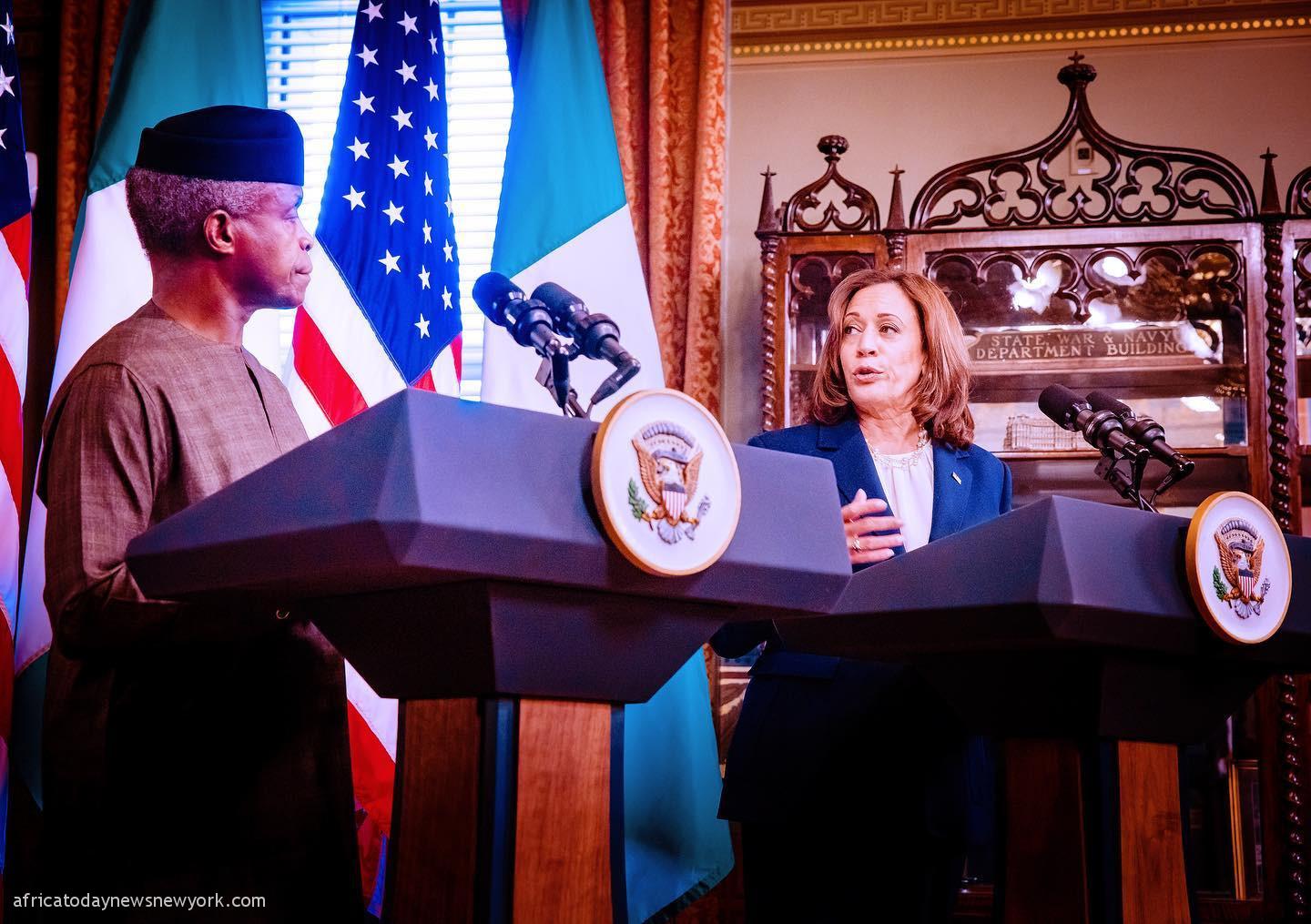The Vice President of Nigeria, Prof. Yemi Osinbajo has asserted that the Federal Government is now in a position to benefit billions of dollars in debt relief from some creditors if the Debt-for-Climate (DFC) swap deal is accepted.
Osinbajo’s spokesman, Laolu Akande, in a statement on Sunday in Abuja, pointed out that the swap deal was proposed recently in the U.S. by the vice president.
He described the idea as fresh thinking in Washington D.C by senior American government officials, is already receiving positive reviews even as Osinbajo explained the potential for significant debt cancellation for African countries.
In his meetings with the top officials of the US Government right after his speech at the Centre for Global Development (CGD), Osinbajo pushed the DFC idea.
‘The proposed DFC swaps would be a very useful intervention and helpful as it will reduce debt burdens,’ while advancing the Climate Change objectives of the international community.’
He went on to describe the idea as a climate change-related financing instrument, which is very much deserving of global consideration as it is a win-win proposal.
Osinbajo also pushed the idea of opening up the Carbon Market in Africa so that the climate change actions of African countries could be adequately verified by the international community through the assessments of the appropriate verification institutions.
Read Also: US Vice President, Kamala Lauds Osinbajo After Meeting Him
‘We are hoping to get support and international buy-ins for these ideas,’ specifically the DFC and the participation of African countries in the international carbon market.
He reiterated that the DFC will help solve many of the debt burden challenges in Nigeria and other countries.
Responding to the DFC proposal, Samantha Power, the Administrator of USAID, told the vice president that the idea was “fresh thinking that is very exciting”.
He added that the U.S. was open to such new thinking even though it would require the full policy review of the American Government.
Experts say that under the DFC, sovereign debtors and international creditors will forgive all or a portion of external debt.
The debts often run into billions in a country like Nigeria, in exchange for a commitment by the country to invest in domestic currency, in specific climate or energy transition projects during a commonly agreed period.
The expectation is that DFC Debt will reduce the level of indebtedness and free up fiscal resources to be invested in clean energy projects in Nigeria and other countries signed up for the programme, once accepted by creditor-nations.
Osinbajo had explained that the swap deal was a type of debt swap where bilateral or multilateral debt was forgiven by creditors in exchange for a commitment by the debtor to use the outstanding debt service payments for national climate action programs.
‘Typically, the creditor country or institution agrees to forgive part of a debt.
‘If the debtor country would pay the avoided debt service in a local currency into an escrow or any other transparent fund, and the funds must then be used for agreed climate projects in the debtor country,’ he said.
While in Washington D.C., the vice president met with his American counterpart, Kamala Harris at the White House and the U.S. Secretary of the Treasury, Janet Yellen
He also held an interactive session with a group of Nigerian staff members of the World Bank and the IMF

